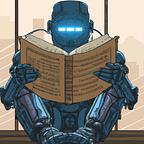The Orville: A Star Trek Tribute
The Star Trek series revolutionized the world of television in the 60s when it first started and opened the door to the space opera science fiction productions that followed. Especially in the 90s, this genre had its golden age and gave us legends like Stargate, Babylon 5 and Farscape. All of these productions, many of which reached cult status despite being set in the same era, had a core idea that was captured in the first Star Trek series. With the new millennium, that core idea has been forgotten, even though science fiction has technically leveled up. The new Star Trek projects that started to come out in recent years created an enthusiasm in all of us with the hope that maybe they would bring it back, but none of them could give us that missing flavor. Until The Orville series…
The Orville was initially seen as a Star Trek parody and not taken seriously because of the comedy factor. I have to confess that I started this show with the intention of watching a creative comedy, but the show slowly toned down that initial dose of comedy to a balanced level, and by the middle of the first season I realized something interesting: this is a real Star Trek adventure with that missing core.
Seth Macfarlane, the show’s creator and lead actor, I think has used the idea of comedy to fool the production companies and the network and create the dream Star Trek show that we all need. Moreover, even though he later used the comedy element only as a sauce, he placed it in such a balanced way that he managed to capture the fun and humor that the original productions lacked. The series, almost every episode of which is composed of self-contained stories, also offers a high level of viewing pleasure with its creative ideas and critical structure. I will touch on these again, but first I would like to clarify what that core idea I mentioned above is (I am sure you are curious).
The fact that the first Star Trek series became a legend in the late 60s is certainly not a coincidence, first of all you have to realize that. It was a time when the space race was on and people were looking up and wondering about the universe. That’s how the legend of Doctor Who started in the UK. Both of them were successful because they offered people that experience. So, the core of it is really nothing more than a sense of discovery born out of curiosity.
Yes, the Enterprise gets into a lot of action and space battles, but if you look carefully, it’s just an exploration ship, just like the TARDIS. It goes on expeditions that last for many years and goes to unexplored parts of the universe. So, the root of this myth is actually not big visual effects, battles with lots of lasers or action, but the pleasure of curiosity and discovery. This feeling, which flared up in those years, lasted until the 90s, but then, with the inward development of technology and culture, everyone started to create their own sphere and organize its interior. Neither the sense of curiosity nor the pleasure of discovery remained. Especially nowadays, when technology allows people to do everything without lifting their heads from their phones, is there anyone left who looks up and wonders? The Orville plays on this idea that I hope people are still in, and I think it manages to lift it up a little bit.
But this sense of discovery is not the only element in that core. It was also a time when radicalization and critical ideas were booming. Star Trek has always maintained its stance by giving space to these ideas and has broken some taboos on its own. Orville follows in his footsteps and makes many criticisms, and most of the time this questioning side of him gets in the way of his sense of discovery. In almost every episode, Seth Macfarlane presents serious criticisms in a subtle and metaphorical, yet subtle way. In particular, his criticism of Moclus, an all-male community, includes harsh but accurate determinations about our social structure, our view of gender and our contradictory nature in many episodes. Moreover, he does not make all these criticisms with an ego that thinks he is showing the right path, on the contrary, he does it by leaving it to you to question and get out of the contradiction.
As a result, The Orville is one of the few productions that can rekindle this lost feeling. In other words, contrary to the prejudiced portrayals of it, The Orville is not just a parody, both in its stimulation of the curiosity of discovery and its critical stance. It is a production that can create its own originality while glorifying its source material and showing that humor can be added to all of this.
Don’t get me wrong, I’m not praising the series here, I’m praising the idea and tradition behind it. Looking at the technical aspects and the performances of the actors, my rating for this series is around 8.5. However, the emotions it evokes, the nostalgia it gives you and the ideas it gives you trivialize this rating. In short, start watching this series and immerse yourself in the pleasure of the journey and discovery, you will not regret it…
